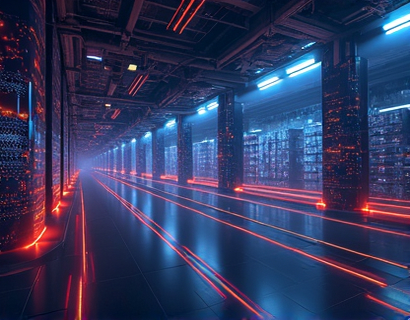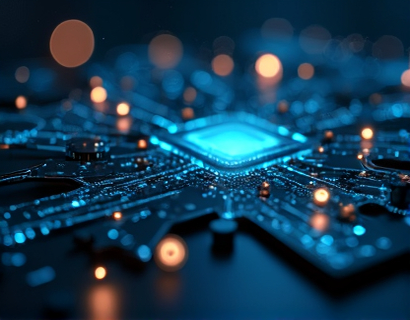AI-Powered Adaptive Learning: Transforming Education for Students and Lifelong Learners
In the rapidly evolving landscape of education, the integration of technology has become a cornerstone for enhancing learning experiences. Among the most transformative innovations is AI-powered adaptive learning, which tailors educational content to meet the unique needs of each learner. This approach not only personalizes the educational journey but also fosters an environment where students and lifelong learners can thrive. By leveraging artificial intelligence, educational platforms can deliver interactive experiences that adapt in real-time, providing instant feedback and support to maximize potential and achieve individual goals.
The Need for Personalized Learning
Traditional educational models often adopt a one-size-fits-all approach, which can leave many students feeling disengaged or overwhelmed. Each learner has distinct strengths, weaknesses, and preferred learning styles, making it essential to create a more personalized educational experience. Personalized learning recognizes these differences and aims to tailor the educational process to fit individual needs. This is where AI-powered adaptive learning comes into play, offering a solution that addresses the diverse requirements of students and lifelong learners alike.
Understanding AI-Powered Adaptive Learning
AI-powered adaptive learning utilizes algorithms and machine learning to analyze a learner's performance and engagement in real-time. By assessing various data points, such as quiz scores, time spent on tasks, and interaction patterns, the system can adjust the content and difficulty level accordingly. This dynamic approach ensures that learners are neither bored with material that is too easy nor frustrated by content that is too challenging.
Key Features of AI-Powered Adaptive Learning
- Personalized Learning Paths: AI systems create customized learning paths based on individual progress and preferences, allowing learners to navigate their educational journey at their own pace.
- Instant Feedback: Immediate feedback helps learners understand their mistakes and correct them in real-time, reinforcing concepts and boosting confidence.
- Engaging Content: Adaptive learning platforms often incorporate multimedia elements, such as videos, interactive quizzes, and gamified experiences, to keep learners engaged and motivated.
- Data-Driven Insights: Educators can access valuable insights into student performance, enabling them to provide targeted support and interventions when necessary.
- Accessibility: AI-powered platforms can cater to diverse learning needs, including those of students with disabilities, ensuring that education is inclusive and equitable.
Benefits for Students
For students, the advantages of AI-powered adaptive learning are profound. By receiving personalized instruction, learners can engage with material that resonates with their interests and learning styles. This tailored approach not only enhances understanding but also fosters a love for learning. Here are some key benefits:
1. Enhanced Engagement
When students interact with content that is relevant to their interests and abilities, they are more likely to remain engaged. AI-powered platforms can analyze a learner's preferences and suggest topics or activities that align with their passions, making learning more enjoyable.
2. Improved Retention
Personalized learning experiences help reinforce concepts through repetition and varied presentation. By adapting to a learner's pace, these platforms ensure that students fully grasp material before moving on, leading to better retention of information.
3. Increased Confidence
Instant feedback allows students to recognize their progress and areas for improvement. This continuous support builds confidence, encouraging learners to take risks and embrace challenges without the fear of failure.
4. Flexibility and Convenience
AI-powered adaptive learning platforms are often accessible from various devices, allowing students to learn anytime and anywhere. This flexibility is particularly beneficial for lifelong learners who may have other commitments, such as work or family.
Benefits for Lifelong Learners
Lifelong learning is essential in today’s fast-paced world, where skills and knowledge must continually evolve. AI-powered adaptive learning offers significant advantages for adults seeking to enhance their skills or pursue new interests:
1. Tailored Skill Development
Adults often have specific goals in mind when pursuing education, whether it’s advancing in their careers or exploring new hobbies. AI-driven platforms can customize learning experiences to align with these objectives, ensuring that learners acquire relevant skills efficiently.
2. Self-Paced Learning
Many adults juggle multiple responsibilities, making self-paced learning a crucial feature. AI-powered adaptive learning allows individuals to progress at their own speed, accommodating their schedules and commitments.
3. Continuous Improvement
Lifelong learners benefit from the ability to revisit concepts and skills as needed. AI systems can track progress over time, enabling users to identify areas for further development and refine their knowledge continuously.
4. Networking Opportunities
Many adaptive learning platforms foster community engagement, allowing learners to connect with peers and instructors. This networking can lead to collaborative learning experiences, mentorship opportunities, and professional connections.
Challenges and Considerations
While AI-powered adaptive learning presents numerous benefits, it is essential to acknowledge potential challenges and considerations:
1. Data Privacy
As AI systems collect and analyze data on learners, concerns about privacy and data security arise. Educational institutions and platform providers must prioritize safeguarding personal information and ensuring compliance with regulations.
2. Equity in Access
Not all learners have equal access to technology and the internet. To maximize the benefits of AI-powered adaptive learning, efforts must be made to bridge the digital divide and ensure that all individuals can participate in these innovative educational experiences.
3. Teacher Training
Educators play a crucial role in facilitating learning, even in AI-driven environments. Providing teachers with adequate training on how to integrate adaptive learning tools into their instruction is vital for maximizing their effectiveness.
The Future of AI-Powered Adaptive Learning
The future of education is undoubtedly intertwined with advancements in artificial intelligence. As technology continues to evolve, AI-powered adaptive learning will likely become more sophisticated, offering even more personalized and engaging experiences. Here are some trends to watch for:
1. Enhanced Personalization
Future AI systems will likely incorporate more advanced algorithms that can analyze a broader range of data points, leading to even more tailored learning experiences. This could include emotional and behavioral data, allowing for a deeper understanding of learner needs.
2. Integration of Virtual and Augmented Reality
As virtual and augmented reality technologies advance, they may be integrated into adaptive learning platforms, providing immersive learning experiences that enhance engagement and understanding.
3. Collaborative Learning Environments
AI-powered platforms may evolve to facilitate more collaborative learning experiences, allowing learners to work together on projects and share insights, fostering a sense of community and teamwork.
4. Lifelong Learning Ecosystems
The future may see the development of comprehensive lifelong learning ecosystems that integrate various educational resources, including formal education, online courses, and professional development opportunities, all powered by AI.
Conclusion
AI-powered adaptive learning is revolutionizing education by providing personalized, interactive experiences that cater to the unique needs of students and lifelong learners. By harnessing the power of artificial intelligence, educational platforms can create engaging and effective learning environments that maximize potential and support individual goals. As technology continues to advance, the possibilities for personalized education are limitless, paving the way for a future where learning is accessible, engaging, and tailored to every learner's journey.










































